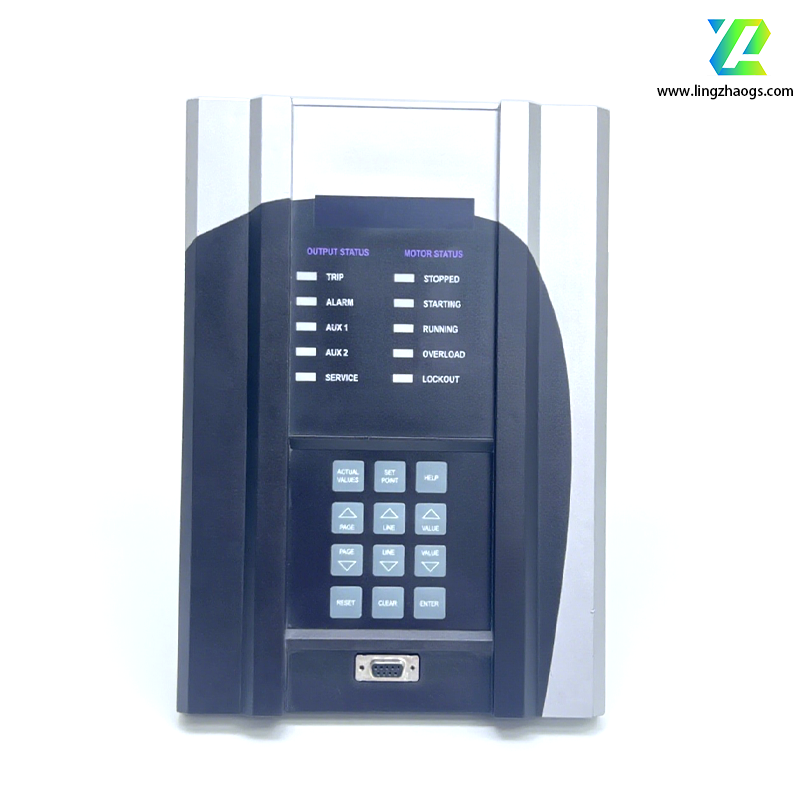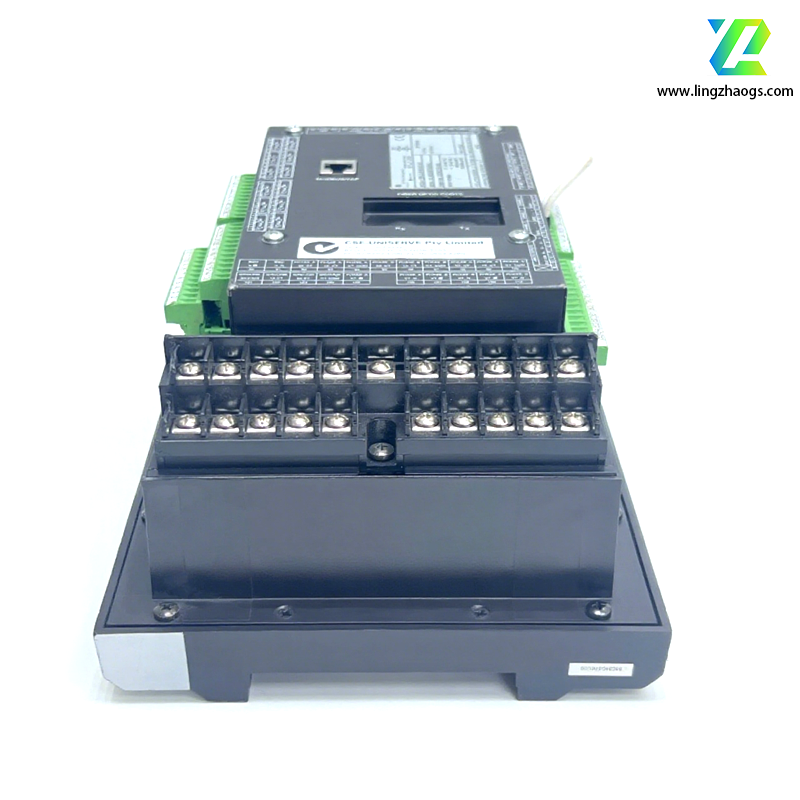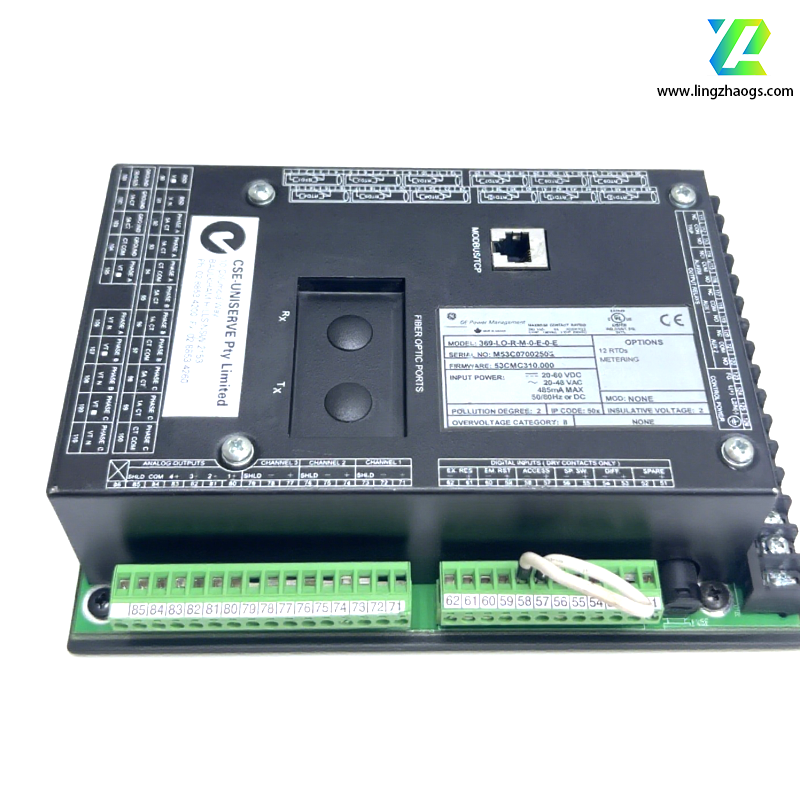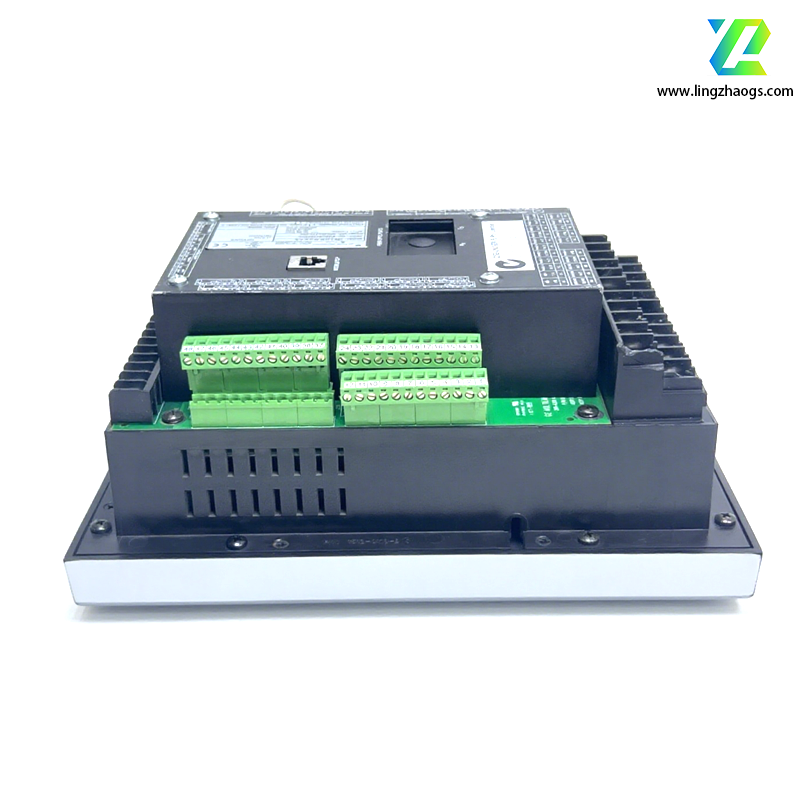GE 369-LO-R-M-0-E-0-E is a motor management relay under the GE Multilin 369 product series, designed to protect and manage medium-sized AC motors and their driving equipment. Below is its detailed information:
Each segment in the model corresponds to specific functional configurations, as explained below:
- LO: Indicates the control power supply range, supporting 10-30 VDC or 20-60 VAC.
- R: Represents 12 optional built-in RTD (Resistance Temperature Detector) inputs for temperature monitoring.
- M: Denotes an optional metering package, enabling precise measurement of electrical parameters (e.g., current, voltage, power).
- First "0": Means no optional fiber optic port is included.
- E: Signifies an optional Modbus/TCP protocol interface, facilitating communication with industrial automation systems.
- Second "0": Indicates no harsh environment option (e.g., no enhanced protection against dust, moisture, or extreme temperatures).
- Last "E": Stands for enhanced diagnostics (including advanced motor diagnostics, extended event logger, and security audit trail) and an enhanced front panel for easier operation and data viewing.
- Input Voltage: 10-30 VDC or 20-60 VAC
- Output Voltage: 0~250 VAC
- Output Current: 0~10 A
- Frequency: 50-60 Hz
- Operating Temperature: -20°C to 55°C
- Storage Temperature: -40°C to 85°C
- Humidity Range: 5% to 95% RH (non-condensing)
- High Performance: Adopts advanced microprocessor control technology to deliver accurate control and measurement of motor operating parameters.
- High Reliability: Uses high-quality components and strict manufacturing processes to ensure stable operation in industrial environments.
- User-Friendly: Features simple operation, easy setup and maintenance, and supports both wall-mounted and DIN rail mounting for flexible installation.
- Powerful Functions: Supports multiple control modes to meet diverse application needs; equipped with enhanced diagnostic capabilities to provide detailed fault information for quick troubleshooting.
It is widely used in:
- Industrial automation systems
- Power systems
- Motor protection and control scenarios
- HVAC (Heating, Ventilation, and Air Conditioning) systems
- Pump stations
- Wind power generation facilities
- Conveyor systems









